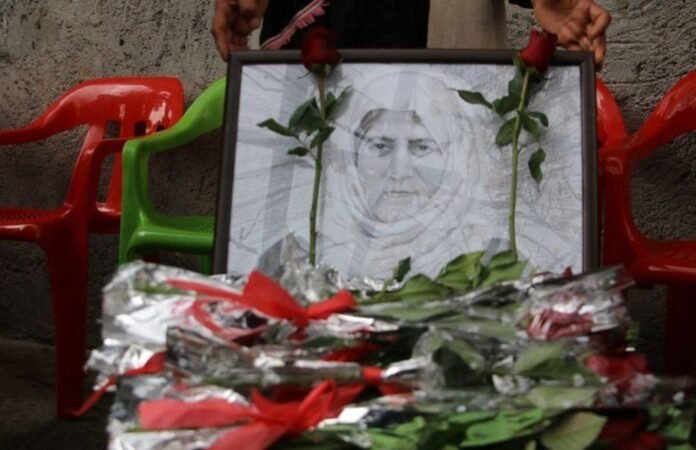Turkey’s Constitutional Court has dismissed nearly all allegations of rights violations in the case of a Kurdish woman whose body was left lying in the street for a week after she was killed by security forces during curfews in the country’s southeast in 2015, Turkish Minute reported, citing the pro-Kurdish Mezopotamya news agency.
The Turkish government imposed curfews in dozens of towns and districts between July 2015 and February 2017 to drive out outlawed Kurdistan Workers’ Party (PKK) militants from urban areas. Rights groups said at the time that the operations trapped thousands of residents in their homes and led to widespread abuses, including civilian deaths.
Taybet İnan, 57, was shot on December 19, 2015, in front of her home in the Silopi district of Şırnak province, a predominantly Kurdish area. Her body remained on the street for seven days before it was taken to a state hospital for an autopsy. The woman, who was a mother of nine, was laid to rest 23 days after her death. Only three family members were allowed to attend her funeral due to government-imposed restrictions at the time.
Her family took the case to the Constitutional Court in January 2021, citing violations of the right to life and two other violations due to the lack of an effective investigation into her murder and the treatment of her body afterward.
The court rejected the claim that the government had violated the right to life and the other allegations on the grounds that the application was not filed within the legal time limit.
Individual applications at the court must be filed within 30 days from the date on which domestic remedies are exhausted, or, if no remedy is available, from the date the violation is discovered, according to the court’s rules of procedure.
The court, however, found a violation only in the handling of İnan’s burial, saying restrictions on the funeral lacked a legal basis and interfered with the family’s right to respect for private and family life. The case was returned to a lower court for retrial, but the family was denied compensation.
The family’s lawyer, Ramazan Demir, said the family will take İnan’s case to the European Court of Human Rights, while Ömer İnan, one of the sons of the deceased woman, said the court’s decision did not come as a surprise since it is not possible to expect justice from a court in a country not ruled by law.
No officials have faced trial over İnan’s killing.
In September 2024 Mezopotamya reported that the Justice Ministry provided no information about the case in response to a parliamentary question submitted nine months earlier by Nevroz Uysal Aslan, a Şırnak deputy from the pro-Kurdish Peoples’ Equality and Democracy Party (DEM Party).
According to the lawmaker, İnan died where she was shot, and security forces prevented her removal for a week. When her husband and brother-in-law tried to retrieve the body, they were targeted by snipers. Halit İnan was wounded, and Yusuf İnan, the brother-in-law, was killed.
A 2016 report by the Turkish human rights group Mazlumder said more than 200 people were killed and over 10,000 homes destroyed in Şırnak’s Cizre district alone during the curfews.
In 2019 the European Court of Human Rights declined to examine complaints over the Cizre curfews, ruling that domestic legal avenues had not been exhausted.















